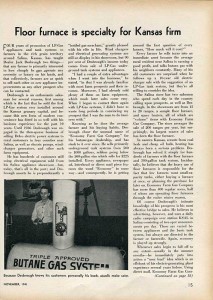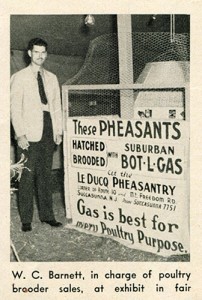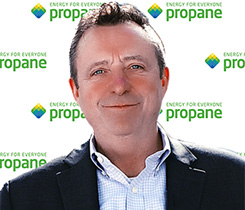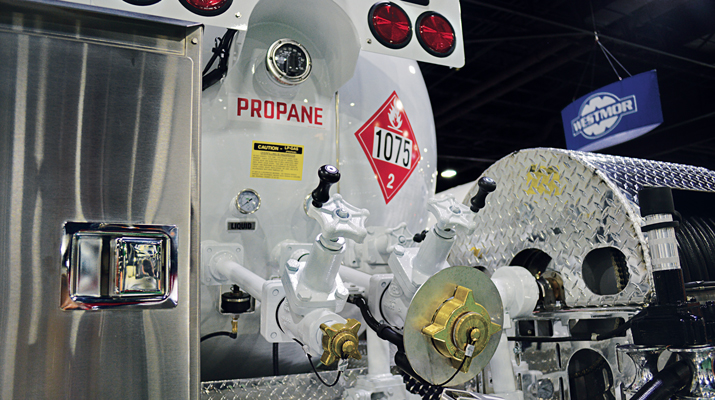Agriculture and propane in 1941
 Marketers help farmers run affordable operations
Marketers help farmers run affordable operations
Farm and agricultural customers serve as a growth market for propane retailers today, what with opportunities to fuel irrigation engines, crop dryers, greenhouse heaters, animal heaters and flame weeders.
While the propane retailers of the 1940s weren’t looking to the agricultural market to sell propane for some of these applications, farming operations and farm owners proved to be steady customers for propane retailers. Farmers then, as they are today, were interested in operating their facilities affordably.
In the 1940s, propane could often offer farms affordable pricing. In the November 1941 issue of LP Gas, a man named Jack Desbrough shares the story on how he launched a propane business called Economy Farm Gas Co. in the late 1930s to serve farming communities. He writes that it was fairly easy to sell appliances to farming companies affordably, which is why he included “economy” in his company’s name.
Additionally, many propane customers lived or worked on the farm in the 1940s, according to Secretary of Treasury Henry Morgenthau Jr. He writes in the December 1941 issue of LP Gas, “In thousands of cases, LP gas and appliances offer the only possible cooking service on these farms, unless the owner is going to be forced to purchase and install a coal- or oil-burning stove. That would certainly be silly, in view of the reported shortages in those lines.”
 Suburban Propane flashback
Suburban Propane flashback
W.C. Barnett, Suburban Propane’s poultry brooder salesman in 1941, finds opportunities to connect with farmers looking for heating appliances to warm their chicken coops.
Barnett, pictured, set up a propane exhibit at a fair to promote propane as a viable option for the agricultural market. According to his advertisement at the fair, “Gas is the best for every poultry purpose.”
Ag equipment company finds new business
A farming equipment company shares its story on launching a propane business out of a farming equipment business in the November 1941 issue of LP Gas.
Oren W. Deer & Son, based in Franklin, Ind., added propane appliances to its farming equipment storefront in an effort to attract more customers. Farmers’ wives regularly visited his store for these appliances, so the owner decided to start selling the fuel, as well, for those new customers.
At the time of this article, the company had one person specialized in both LP gas and propane appliances. If the company’s farming equipment salesmen generated a propane appliance prospect, they partnered with the company’s propane specialist to seal the deal.
















